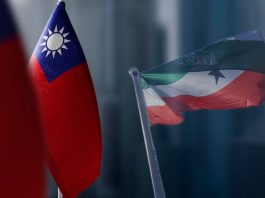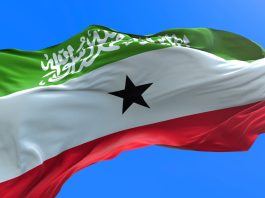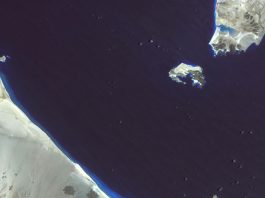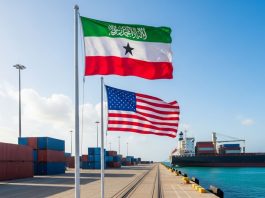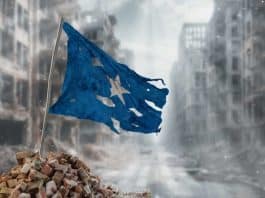CHAPTER 3: LITERATURE REVIEW
In considering the literature in relation to international recognition of Somaliland, a number of issues of importance came to the fore. The primary objective of this literature review will be to furnish an overview of key articles relevant to Somaliland’s quest for international recognition through the identification and definition of key concepts. The chapter will also look to present an outline of the key theoretical arguments and their significance with respect to the ongoing debate.
The initial points at issue are those in relation to the country’s historically unique background and its withdrawal from the union in 1991. Historically, profound insecurity and civil war have characterized the situation in Somaliland and Somalia, with conflict and struggle predominant still in southern Somalia.
Somaliland’s hasty union with Somalia in 1960 and its existence as a region of Somalia until 1991 resulted in it being recognized as a self-governing area of Somalia.
The Republic of Somaliland is located in the Horn of Africa and borders the Gulf of Aden to the north, Djibouti to the northwest, Ethiopia to the south and west, and Somalia to the east. The total area of the country is 176.119 square kilometres (6,800 sq. miles), with a coastline of some 870 kilometres. Its history stands in contrast to the current turmoil that afflicts Somalia: “Somaliland has an ancient history and civilization. For a long period in the past, Somaliland had well-established trade links with the rest of the world particularly ancient Egypt (the Pharaohs), the Romans, the Arabian Peninsula and the Indian sub-continent. Commodities like hides and skins, frankincense and myrrh, ivory, gums, and feathers were traded in exchange for consumer products such as sugar, tea, dates, clothes etc. It was uniquely the hub of the spice trade (frankincense and myrrh). The trade links to the Middle East and East Asia existed via the Red Sea and the Indian Ocean routes” (Nur, 2018). However, the main links between Somaliland and Somalia are those of a common language, religion and culture.
Somaliland owes its existence to two principal factors: its proximity to Yemen and its bountiful numbers of sheep. In the late 19th century, Britain (with the support of Italy) and France (with the support of Russia) were engaged in a battle for control of the Nile. In order to offset French influence and ensure a constant supply of mutton for its garrison in the port city of Aden in Yemen, Britain reached agreements with a number of tribes in northern Somalia (Nur, 2018).
The former British Protectorate of Somaliland broke away from Italian Somalia in 1991 when clan-militias ousted Somali dictator Siad Barre, some thirty-one years after the two regions had entered into a union in 1960 following independence. Since that rupture, Somalia has lapsed into three decades of civil war, notable for the level and extent of its corruption, violence and religious extremism (Keating, 2016). This violence the product of clan-based rivalries, and the struggle for power and resources by a number of warlords (Chabal et al: 84). Following the collapse of the dictatorial regime of Somalia’s Siad Barre, these internecine elements became even more pronounced. The coup d’état of the 31 October 1969 saw Barre seize power, leading to the subsequent suspension of the Constitution and National Assembly, and a widespread crackdown on opposition politicians and political parties (Pavkovic: 501).
While armed insurrection began in 1982, it was not until 1988, in the wake of the defeat of the opposition Somali National Movement (SNM) that clan-based violence spread and intensified. The challenge to Siad Barre saw him finally ousted in 1991, but the underlying weakness and lack of unity among opposition groups exacerbated clan rivalries and ultimately degenerated into criminal violence (Chabal et al: 85). While exiled members of the Isaaq clan had come together in London to form a political wing, violence, civil disobedience and guerrilla warfare were the norm in Somalia (Gurdon: 61)

3.0 The justification for the 1991 secession then arises.
The issue of secession first emerged quite forcefully in the 1960s as decolonization and questions over the viability of the newly independent states across the continent came to the fore. Two cases in particular gained prominence, that of the Congo, where United Nations forces brought an end to Katanga’s breakaway state; and Nigeria, where the Biafran secession was overturned by Nigerian federal forces. (Woodward, 2016). However, secession was not just confined to Africa; other European and Asia countries experienced it too. Norway seceded from Sweden in 1905; Iceland from Denmark; Senegal from the Mali Federation in 1960; and Singapore withdrew from the Federation of Malaysia in 1965. Other examples include the so-called velvet divorce tween the two regions of Czechoslovakia in 1993, and Montenegro’s withdrawal from the Union of Serbia and Montenegro in 2006 (Pavkovic: 294).
Although the unfurling of events in Somalia appears to have been a source of confusion and caused some degree of bafflement for the international community, the underlying constitutive elements are far from complex. The secular, nationalist and Marxist dictatorship, which had drawn fundamentally on a political order of clientelism and repression collapsed when resources were finally depleted. (Chabal et al: 85). In seceding and proclaiming itself independent, the Republic of Somaliland contended that union with the dominant South had led to thirty years of subjugation and repression and that the act of secession was but a reversion to the territory’s former independent status, based on the same internationally accepted borders (Pavkovic: 289). With respect to the validity of the territorial argument, the territoriality thesis is evidently strong; the secessionists must be able to demonstrate a right to the territory in question, as secession entails not just the renouncing of a political obligation, but also a claim to and sequestration of land (Buchanan. 2001: 353).
The legitimacy of Somaliland’s argument for self-determination rests uniquely on its separate colonial existence, its five days of sovereign independence and its adherence to its former colonial borders. Somaliland’s adherence to the territorial integrity of its pre-independence colonial-rule borders makes its claim to self-determination perfectly consistent with the Constitutive Act of African Union’s (AU) (Bryden, 2004: 170-175: anonymous, 2002: 197). Indeed, a 2005 AU fact-finding mission (AU, 2005: 4) was of the view that these various elements made “Somaliland search for recognition historically unique and self-justified in African political history. (Pegg et al., 2014: 197)
South Africa’s approach has been one informed for the most part by pragmatism, as it looks to arrive at a workable solution to governance of at least part of Somalia. The UK has been to the forefront of the international community in its support for the recognition of Somaliland, while the US granted de facto recognition in March 2010, through its invitation to an official delegation from Somaliland to talks in Washington (Pavkovic: 503). Pegg notes that, “Entities which feature long-term effective and popularity supported organized political leadership that provide governmental services to a given population in a defined territorial area. “They seek international recognition and view themselves as capable of meeting the obligation of sovereign statehood. They are, however, unable to secure widespread juridical recognition and therefore function outside the boundaries of international legitimacy” (Hoehne, 2009: 257).
With respect to each of the criteria set out above, Somaliland’s case can be adjudged strong: it had furnished its people with relative peace and stability, established a bicameral legislature and held four free and fair national elections since 2003. In addition, it issues its own passports, has its own fiat currency and is now in the early stages of attracting foreign investment (Tom, 2018). In contrast, as Kaplan (2008: 147) has noted, while the south is home to an assortment of competing factions, Somaliland has embarked upon a different route. Mogadishu has sought to engage external expertise in order to implement a top-down approach as opposed to the bottom-up formula that has led to the construction of a functioning government in the north, where little, if any, external support has been prevailed upon. In addition, as Dr. Shire makes clear: Somaliland has been a very responsible partner to the international community, in terms of fighting piracy, in terms of fighting extremism in terms ensuring security in this part of the world, … and that these and other things should be enough to give credibility to Somaliland as sovereign state in this region
Additional challenges have also emerged, in the case of the UK; assurances of economic support have not translated into official recognition, as there are concerns that this could be interpreted as a form of neo-colonialism. As such, while it is content to encourage African States to extend recognition, it is unwilling to do so itself (Poore, 2009: 121). Furthermore, as Keating (2018) points out the examples of Eritrea and South Sudan, anarchic, economically crippled and unstable have detracted from Somaliland’s argument that recognition would foster regional stability (Keating, 2018). This is an argument that Doughty was keen to commend;
“I think as a former colonial power, it is reluctant to interfere in the affairs of a former protectorate or colony, and so sometimes this leads to their being less engaged than they should be and I think it’s almost an anti-imperialist kind of mind se. Of course, no body want to return to the British empire, nobody wants to return to that, but I think sometimes it can go too far, and not actually have a positive relationship with countries, who want to have a positive relationship with Britain, Somaliland obviously is one of those countries, but there are also many other countries in the Commonwealth, and so I think that’s one of the issues”.
The proclamation of Somaliland independence occurred against a background in which regional concerns and sympathies appeared to inform acceptance and recognition internationally. While the independence of Eritrea, was officially sanctioned by the United States and discreetly backed by Arab countries, with widespread sympathy evident in Europe, the collapse of Yugoslavia and the USSR evoked concern in Europe and was met by a general reluctance to grant diplomatic recognition to the resultant new states (Gurdon: 72). The response to Somaliland’s declaration of independence was met not by hostility or any particular sympathy, but rather by a degree of pragmatic wariness, as both Washington and Europe sought to avoid any premature diplomatic move less north-south reconciliation materialise. (Gurdon: 72). In other arenas, the evident wariness of the African Union and the Arab League may be attributable to concerns that recognition might set a precedent and embolden regional separatist movements (Keating, 2018).
This a point that Mr Irro was keen to emphasize: One is our immediate neighbors, who don’t support the case of succession, because some countries feel that could be a Pandora box for many countries, and African boarders have been drawing by the European colonial powers, and in every countries there are different communities which have been either put together in one side separated by boarders in different tribes and I think that’s the main reason why the most African countries are not supporting our case. To illustrate this point further, Doughty noted that, “I think there is a worry (I think wrong) that what happened for example in South Sudan and what happened in some other situations – nobody wants to see that happen anywhere else so therefore they adopt a very cautious approach, which I actually think is a risky strategy because equally by not engaging Somaliland and not recognising it, I think we are making a mistake not just for the stability of the Horn, but also for British interests in that region”.
 A further problem presents in that the ambiguous diplomatic status of Somaliland and the absence of formal political endorsement by the international community have proven to be a significant barrier to its receiving foreign aid. (Gurdon: 69). This also means that potential investors are discouraged from investing in ‘Somaliland’s oil and petrol assets as Somaliland “cannot enter into formal trade agreements with other nations and has understandable difficult in seeking and certainly securing funding from world financial organisations. (Poore, 2009: 133).
A further problem presents in that the ambiguous diplomatic status of Somaliland and the absence of formal political endorsement by the international community have proven to be a significant barrier to its receiving foreign aid. (Gurdon: 69). This also means that potential investors are discouraged from investing in ‘Somaliland’s oil and petrol assets as Somaliland “cannot enter into formal trade agreements with other nations and has understandable difficult in seeking and certainly securing funding from world financial organisations. (Poore, 2009: 133).
This isolation is problematic in other ways as government bodies are unable to receive bilateral technical assistance from other countries. In addition, the World Bank, the International Monetary Fund, the African Development Bank, and bilateral development agencies cannot provide financial aid; banks and insurance companies are unwilling to establish branch networks; and the inability of firms to obtain letters of credit from banks makes the direct import of goods difficult. As a result, in the absence of necessary insurance and other protections, international investors are reluctant to make long term commitments (Kaplan,. 2008: 152)
- More recently, significant changes have occurred in Somaliland:
“Dubai-based DP World is embarking on a multimillion-dollar port expansion, while London-listed Genel Energy plans to drill for oil. Somaliland this year signed a deal with Ethiopia to invest in its port alongside DP World. Last month Harriet Baldwin, UK Minister of State for Africa visited the country. Somaliland has diplomatic representation in dozens of countries around the world, including the UK and international engagement between Britain and Somaliland is frequent. The UK’s International Development Department spent £25m between December 2012 and September 2018 on a national development fund to improve governance, accountability and public service delivery in the self-declared state, but like the rest of the world, it does not officially recognize the country” (Tom, 2018). Nonetheless, in terms of Somaliland and UK relationship Doughty point out that;
“It’s a very positive relationship, the Somaliland government has its Mission in London headed by Ayan Mohamuod, who I have a close relationship with, and she holds regular meetings with UK government officials and hosts delegations of ministers In Somaliland. the UK office in Hargeisa is headed by Stuart Brown, who actually also came from Cardiff, originally from South Wales and I met Stuart a few weeks ago and we have a very good relationship with his office and I know that the UK presence in Somaliland is very strong in terms of certain funding. I think they are looking at new projects and new ways of working. I visited a very interesting program between the UK government and University of Hargeisa concerned with the training of journalists, which I thought was very interesting. There are also courses on security and military affairs – we have very close links with the former defence secretary, Gavin Williams, who has visited Somaliland. There are strong links with the Somaliland armed forces and also a good relationship with our police forces, so I would like to build on these many positive examples of cooperation, I would just like to see some growth in this area of engagement and for it to become more formal”.

While the concept of statehood falls squarely within the legal domain, recognition is within the remit of the political sphere. Although foreign officials can generally be described as sympathetic to its history and complimentary of its recent achievements. Somaliland suffers not because of any explicit hostility to its goals but rather as a result of indifference to them (Keating, 2018). Perhaps the deciding factor in relation to its acquiring international recognition is the reluctance of African states to permit changes to Somalia. This, despite the wider threat to the region as a result, to international shipping along the East Africa coast and to international security from terrorism (Pavkovic: 502). A further hindrance under international law is that while states can grant de facto recognition to Somaliland, they can still decline to recognize it as a state. Interestingly, Article 74 0f the Vienna Convention, explicitly states: “the severance or absence of diplomatic or consular relations between two or more States does not prevent the conclusion of treaties between those States” (Poore, 2009: 119). With regard to the issue of recognition by states within the region, Dr Shire notes the extensive efforts that Somaliland has made to put its case and how regular meetings continue to be held, however, despite the apparent failure of these, he is quite sanguine, noting that “eventually you know the international community will came around and accept Somaliland as an equal partner in this region”. On the other hand, Irro is less phlegmatic, noting that “as I said we have all the requirement, but I think there other, as I said it’s not enough, we have proven that it’s not enough to produce good case, good history, good behavior peace, to create peace, to create a good govern, all that is not enough”. Yet, Doughty emphasized the enormous task that confronts the recognition campaign, noting that;
“We work with other members of parliament and indeed we attempt to meet with ministers and government and officials in the UK government from the Foreign Office and from the Department for International Development and sometimes other international agencies to make the case and I think the third thing is, we often work with groups, and I work with groups across the country, who are campaigning for recognition. So, in Cardiff here we had organized a citywide campaign for recognition, which was supported by city councils. Sheffield we know has also done it, and this week some exciting news came from Birmingham, which now also recognises Somaliland. Therefore, it is about raising awareness, bringing people together, and campaigning. The obstacles we face I think are ignorance- often I think there are so many other issues at the moment on the British political agenda, particularly internationally, and so when you look at the fact that we have a Brexit situation going on, and issues with Russia, the United States, and China, there are so many other concerns for Britain to attend to. Unfortunately, sometimes other contexts get forgotten, I would say that’s an obstacle, and I think the third obstacle is that I think any diplomatic process of this nature takes a very long time, things do not happen overnight, and people are naturally very cautious”.
3.1 Conditions of statehood in the context of the Montevideo Convention.
Somaliland is not alone in having to contend with a contested claim to independent statehood: Abkhazia, South Ossetia, Nagorno Karabagh, Transdniestra, Northern Cyprus, and Kosovo have also made similar proclamations. Where bilateral secession occurs, “a clear expression of democratic will” by those desirous of secession and negotiations between the secessionists and the parent country are required (Kreuter, 2010: 370). In the context of sub-Saharan Africa only Eritrea (in 1993) and South Sudan (in 2011) have seceded and gained international recognition, but this only after their respective parent states had acceded to their request (Pegg et al., 2014: 198).
It has been argued that Somaliland’s case for independence draws strength from a comparison with that of Eritrea. It too was a former British colony, and later subject to French control in what is now Djibouti (Gurdon: 4). Additional support can be adduced in that it existed as a separate territory with internationally recognized borders for more than seven decades of colonial rule, and its transitory independence in June of 1960 was sufficient for it to garner recognition from some thirty-five sovereign states (Kaplan, 2008: 152).
As some have stated, the claim to statehood is not one that calls on the collective memory of its claimants, or a natural boundary that has altered with the passage of time, rather it rests on very distinct former colonial borders created by the British, and is eminently rational. Somaliland is also a functioning democratic state in evident contrast to its neighbor to the south (Pavkovic: 501). It has also been claimed with some justification that Somaliland more readily meets the criteria of the 1933 Montevideo Convention on the Rights and Duties of a State than Somalia: it has a permanent population, well-defined territory, a functioning government, and the evident capacity to engage at all levels with other states. Since 1991, the Somali administration has essentially been delinquent and unable to exercise control over much of the country’s territory. (Kaplan, 2008: 153).
While the case for Somaliland is undoubtedly strong, as Caplin (2009, pp.9-10) has pointed out, negotiations moderated by international bodies tend to withstand the political vagaries of the short to medium-term and endure. The legality of the union has also been subject to much criticism, as The Act of Union was not ratified by the two countries legislatures

Somaliland’s ability to present its case in terms of the dissolution of a failed union affords it the possibility of a wider tradition of acceptance within the context of such failed unions. Examples abound, including Egypt/Syria, Cape Varde/ Guinea Bissau, and Senegal/Gambia among others (Kaplan, 2008: 152). The more recent dissolution of Yugoslavia being a case in point, with its constituent republics recognized even absent the consent of the parent state (Pegg et al., 2014: 197; Fabry, 2008: .62).
Even among unrecognized states, Somaliland can be regarded as a special case – being both completely independent and politically entirely isolated. Unlike South Sudan before independence, Somaliland’s claim to statehood is founded not on an attempt to redraw colonial borders, but to re-establish them. Again, it differs from other cases normally cited in that, for example, in the case of Taiwan, it borders not a richer and more powerful country, but one that is measurably weaker in all respects. Neither does it enjoy the renown accorded to states like Palestine, its quest for independence is not a cause celebre for global political activists, even though the United Nations Charter states that: ‘Nations, based on respect for the principle of equal rights and fair equality of opportunity have the right to freely choose their sovereignty and international political status with no interference’.
3.1.1. African Union- Fact-Finding Mission 2005
Somaliland received a delegate from the African Union Fact-Finding Mission on the 30th of April 2005, their objectives being to appraise, evaluate and observe from a political, social, and economic standpoint. After concluding their feasibility study, the Fact-Finding Mission, stated that:
Going by the clear presentation and articulate demands of the authorities and people of Somaliland concerning their political, social and economic history, Somaliland has been made a “pariah region” by default of Union established in 1960 brought enormous injustice and suffering to the people of the region. The fact that the “Union between Somaliland and Somalia was never ratified” and also malfunctioned when it went into the action from 1960 to 1990 makes Somaliland’s search for recognition historically unique and self-justified in African political history. Objective view, the case should not be linked to the notion of “opening Pandora’s box” as such; the AU should find a special method of dealing whit this outstanding case. (AU. 2005)
3.1.2 Montevideo Convention 1933
The Montevideo Convention (1933) set out the criteria required for statehood:
- A territory defined by international colonial borders;
- A permanent population;
- A functioning government; and
- The capacity to enter into relations with other governments and international organizations
These, the Republic of Somaliland meets with a population of 3.5 million, well-defined and historically recognized borders, a functioning government with a house of representatives, (the lower house), a house of elders, (the upper house), a flag, an anthem, requisite security and armed forces, a fiat currency, passport system and central bank.
A point also noted by Dr Shire:
Legally in international law Somaliland has fulfilled all the requirement of a sovereign state, it has an international boundary, has a government in authority, has permanent population, has the ability and the capacity to enter into agreements with international organizations and another countries.so it has completed fulfilled all the requirement as was agreed Montevideo 1933,
Increased interest in Somaliland’s offshore hydrocarbon deposits in recent years has led to the creation of a number of international joint ventures. A British-Chinese joint venture (China’s Sinopec and Britain’s Rova) was granted exploration licenses in 2000 to explore oil deposits in two offshore blocks, totaling some seven million acres. Recently, the South African-owned Ophir Energy Corporation acquired 75% of the issued share capital of Rova, a special purpose vehicle established to develop and secure Somaliland interests (Rova Energy Corporation 2006) (Jhazbhay, 2008: 82). In addition, Somaliland signed a $442 million agreement with the Dubai Port Authority, (DPW) and Ethiopia as they look to invest in Berbera Port in Somaliland. Berbera Airport has also been leased to the UAE for use as a military base.

While the arguments against statehood are limited within the literature, they are present nonetheless; Hoehne (2012) argues that Somaliland represents a hybrid political order, that is, one in which power and legitimacy are negotiated in settings where the Western model of the liberal democratic state does not appear to be able to function. In this scenario, they can be viewed as an amalgam of traditional’ and ‘modern’ political institutions. From this perspective, the Republic of Somaliland has often been regarded as a functioning hybrid political order, with its combination of traditional authorities, the ‘House of Elders’, the upper house of parliament, and more modern elements. Hoehne (2012) is of the view, however, that the hybrid political order seen in Somaliland can now no longer be adjudged a success. Currently, he contends it should be viewed as a ‘crippled’ hybrid, which impedes any further possible democratic progress and undermines the legitimacy of the state institutions in addition to those of the leading traditional authorities. Somaliland can therefore be seen to serve as an example of the limits of the model and of the political system currently in place there. Additional criticisms of the hybrid state model are to be found in Bagayoko et al., (2016), who claim that they can become sites of contestation, and that considerable work is required to avoid patterns of inclusion and exclusion.
3.2 The problem statement.
The purpose of the projected research is to study, examine and review the obstacles that currently face Somaliland in its struggle for international recognition. It has been recognised that a new strategy must be adopted to address the issues that present, new levels of engagement realized, policies designed and implemented, and an effective new agenda endorsed and given effect internationally.
3.3 The professional significance of the study.
The significance of the study rests on its consideration of the various and diverse elements that have hindered international recognition of Somaliland’s statehood and how this might reasonably be addressed. While constraints in relation to time and resources have impacted the scale of the research, the author’s background and understanding of both the minute and broader elements at play have been beneficial in determining the factors that are relevant to study framework. Furthermore, the opinion elicited via interviews of former government members can only vest the researcher’s conclusion with greater degree of authority and significance.

